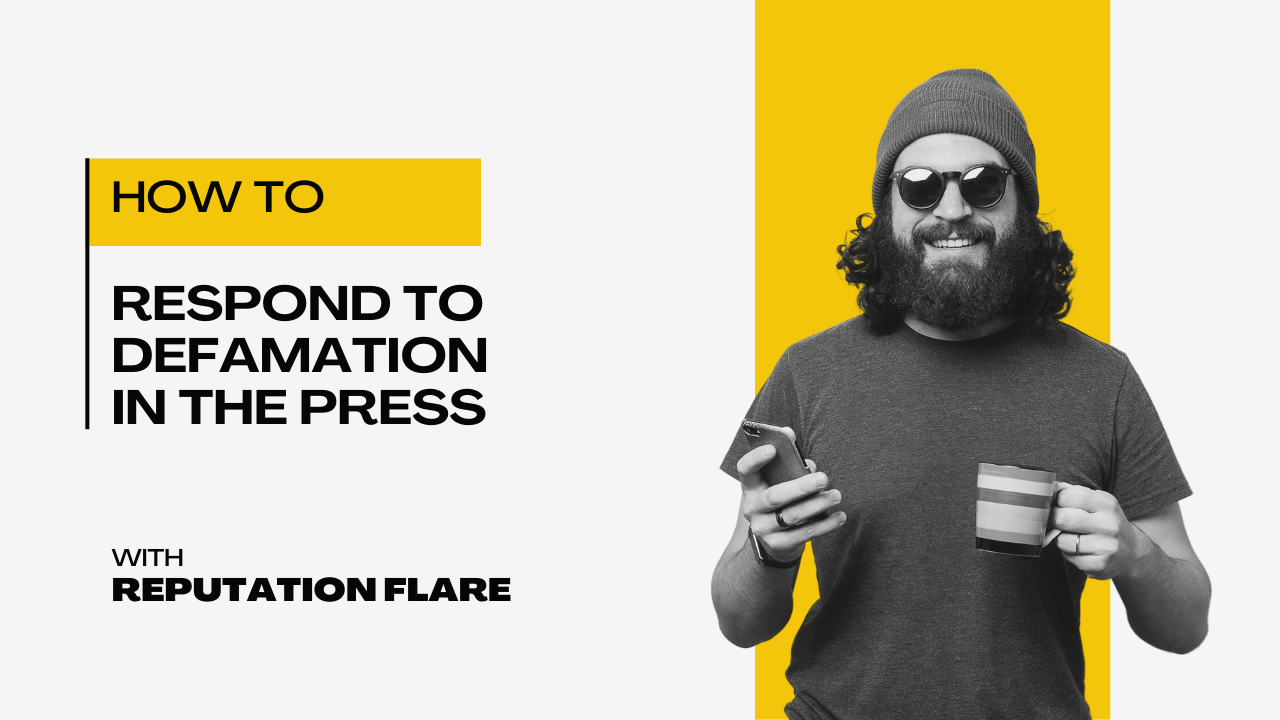Being defamed in the media is one of the fastest ways for your reputation, career, or business to take a hit. A false claim, even if it is subtle or implied, can spread quickly and leave lasting damage. If you have been defamed by a news outlet, timing and strategy matter.
Here is how to respond to defamation in the press without making the situation worse.
Learn More: How to Remove a News Article from Google
1. Confirm That It Is Actually Defamation
Not every negative article is defamatory. For it to qualify legally as defamation, the statement must be:
- False – It cannot simply be an opinion or a harsh truth
- Published – It must have been shared with others (a newspaper, online post, etc.)
- Harmful – It must cause real damage to your reputation, career, or standing
- Negligent or Malicious – The publisher either knew it was false or failed to verify the facts properly
If you are unsure, gather the article, statements, and any supporting evidence, and review them carefully—or consult a defamation lawyer.
2. Stay Professional in Your Response
Do not lash out online or send angry emails. A public argument often does more damage to your credibility than the original story.
Instead:
- Stay calm and document everything
- Plan your communication carefully
- Focus on setting the record straight, not escalating the dispute
A composed, strategic approach will always give you a better outcome.
3. Contact the Publisher Directly
Your next move is to approach the media outlet directly.
How to do it:
- Find the journalist’s or editor’s email address
- Write a professional letter requesting a correction, clarification, or full retraction
- Point out exactly what is false and why
- Provide evidence that supports your side (court records, contracts, screenshots, etc.)
Most credible news organisations will take a correction request seriously, especially when backed by hard facts.
4. Request a Public Correction or Retraction
If your evidence is strong, ask the outlet to:
- Issue a correction – A note acknowledging and fixing the false information
- Publish a retraction – A full withdrawal of the article or defamatory statement
- Update the article – Correct the record in the original piece and search result preview
Corrections are valuable because they not only fix the original piece but also reduce the visibility of false claims in search results.
5. Consider Legal Options if Necessary
If the publisher refuses to correct the story and the damage is serious, you may need to consider legal action.
Legal responses could include:
- Sending a cease-and-desist letter
- Filing a lawsuit for defamation or false light
- Seeking damages for harm caused by the false story
Keep in mind that lawsuits can take months or years, and sometimes draw more attention to the original story. Legal action should be a serious decision made with guidance from an experienced attorney.
6. Focus on Reputation Recovery
Regardless of whether the outlet cooperates, you should work to repair your online reputation.
How to rebuild:
- Publish positive stories about your business or career
- Get featured in new interviews, press releases, or blog posts
- Optimise your social profiles and websites to rank higher in search results
- Monitor online mentions regularly for any follow-up attacks
Suppressing the negative content with stronger, fresher material is one of the most effective long-term strategies.
Final Thoughts
Defamation in the press can feel personal and overwhelming—but it is not permanent. With the right response, you can correct the record, rebuild your reputation, and move forward stronger.
If you are dealing with defamation, Reputation Flare can help you navigate removal, suppression, and recovery.
Get a Free Quote today and let’s start protecting your reputation the right way.

